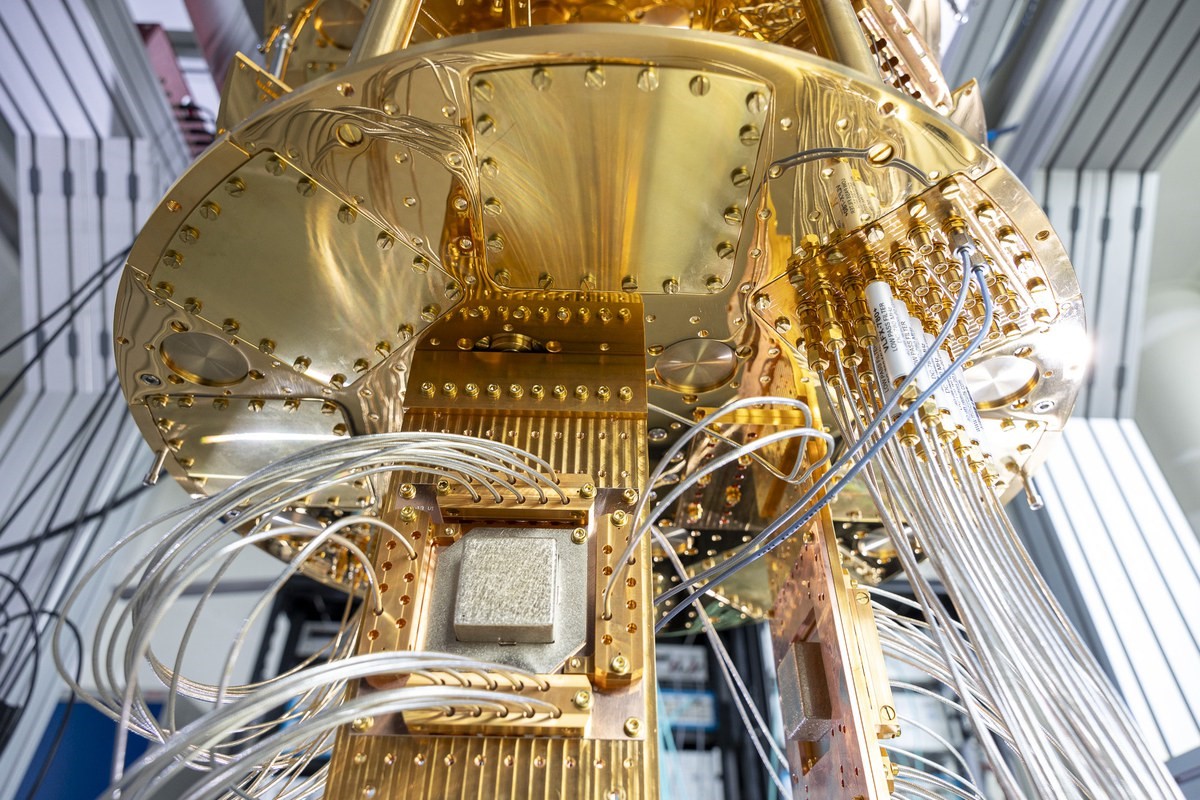QSolid and the Jülich Research Center Launch Germany’s First Optimized Superconducting Quantum Computer Prototype

Insider Brief:
- The Jülich Research Center, through the QSolid project, has launched Germany’s first quantum computer prototype with optimized superconducting qubits with the goal of supporting complex calculations in industry and research.
- Funded by the Federal Ministry of Education and Research, QSolid brings together 25 German institutions, with a total investment of €76.3 million (approximately $83 million).
- The 10-qubit system, equipped with a custom software stack and soon accessible via cloud through JUNIQ, will undergo further development to integrate with Jülich’s supercomputer, advancing toward a hybrid quantum-HPC system by 2026.
- Image Credit: Jülich Research Center / Sascha Kreklau
PRESS RELEASE — In the large-scale QSolid project, the Jülich Research Center, together with its partners, has put the first prototype for a quantum computer with optimized qubit quality into operation. It forms the basis for a future quantum computer based on superconducting qubits developed in Germany, which should be able to carry out complex calculations for industry and research.
After two and a half years of project work, the consortium of over 160 people around project coordinator Prof. Dr. Frank Wilhelm-Mauch from the Jülich Research Center has reached a major milestone in the national joint project. “We have developed a compact but powerful system that is now ready to move on to the next development phase,” says Prof. Frank Wilhelm-Mauch happily. In the coming years, the system will be further expanded and integrated into the existing Jülich supercomputer environment in order to further increase its performance – from the current 10 to 30 qubits. The abbreviation stands for “quantum bits”, the central information unit of a quantum computer.
“We are happy that we were able to build up our competencies in the first half of the project and bundle them in an initial system. With the secured financing, we can now scale up to a truly remarkable platform,” says Prof. Wilhelm-Mauch.
Part of the German research strategy
QSolid is 90 percent funded by the Federal Ministry of Education and Research (BMBF). The project, in which 25 institutions from Germany are participating, is part of the German strategy to secure technological sovereignty in the field of quantum research. The overarching goal is to strengthen Germany’s industrial competitiveness and to enable new applications in science and industry, for example in areas such as chemistry, materials research or medical technology.
A total of 76.3 million euros will be invested in the project. The financial resources have now been fully released by the BMBF due to the convincing performance data of the 10-qubit prototype.
10-qubit demonstrator in operation
The now completed system has a low error rate, a tailor-made software stack and will be connected to JUNIQ, the JUelich user infrastructure for quantum computing, via cloud access in the next few weeks. The core of the prototype is the quantum processor, which already offers high performance. The software stack has also passed initial functional tests and is currently being connected to the quantum processor. In addition, larger subsystems for cabling, electronics and software have already been developed and installed on the central system. There are also new test options with which the next generation for the cryogenic control of qubits will be developed so that the operation of the qubits will be simpler and more energy-efficient in the future.
Further development for applications in industry and science
As the project progresses until the end of 2026, the team will develop and optimize several processor types based on the results now presented. The prototype of the QSolid demonstrator is expected to multiply its performance in the long term.
A central goal of the QSolid project is also the integration of quantum computers into the existing high-performance computing environment of the Jülich Supercomputing Centre. The combination of quantum and supercomputers should make it possible to carry out particularly complex calculations faster and more efficiently. “The first steps towards a hybrid system that combines quantum and supercomputing have already been taken. Integration into the Jülich high-performance computing infrastructure (HPC) is already possible in some cases,” explains Prof. Wilhelm-Mauch.
